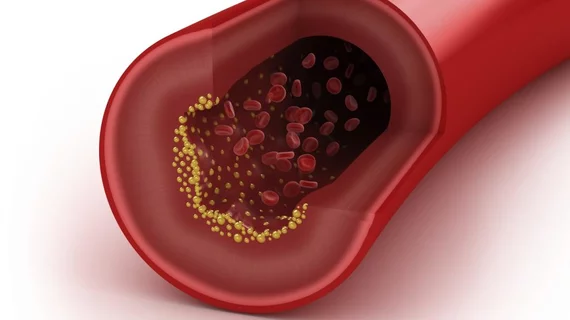NIH awards $5.1M for PET-based method to reduce CVD risk
The National Institutes of Health (NIH) awarded $5.1 million to an associate radiology professor at Washington University School of Medicine in St. Louis to develop an imaging-based approach that would reduce the risk of cardiovascular disease.
Yongjian Liu, PhD, with the university’s Mallinckrodt Institute of Radiology received the Emerging Investigator Award from the NIH’s National Heart, Lung and Blood Institute.
The award will support Liu over the next seven years as he develops a PET-based, noninvasive imaging tool to identify dangerous clots or vulnerable plaque, from less-dangerous blockages.
“There’s really no way to identify people at risk unless you do imaging,” Liu said in a news release. “Genotyping and blood chemistry don’t reveal what’s going on inside the blood vessels. Only imaging lets us look inside a person’s body and quantify the severity of disease.”
Liu is currently creating probes that can pick up signs of inflammation within plaque—a common precursor to vessel rupture. He will work with Daniel Kreisel, MD, PhD, a professor of surgery at the university to study blood vessels taken from patients who underwent plaque-removal surgery and mice with plaque-hardened arteries to see if his radiotracers can detect vulnerable plaque.
“The goal is really individualized, targeted treatment,” Liu said. “Right now, we don’t know who is at risk and even if we did, we can’t deliver drugs precisely and efficiently.”
As part of his research, Liu is also developing a method to load anti-inflammatory compounds onto nanoparticles which, paired with vulnerable plaque probes, could deliver drugs directly to dangerous blockages.
“With imaging, we’ll be able to identify vulnerable plaque, deliver treatment directly to it, and see whether the treatment is effective. In a few years, I hope to be able to deliver a toolbox that will allow doctors to find patients at risk and treat them before they have a heart attack or stroke,” he added.

